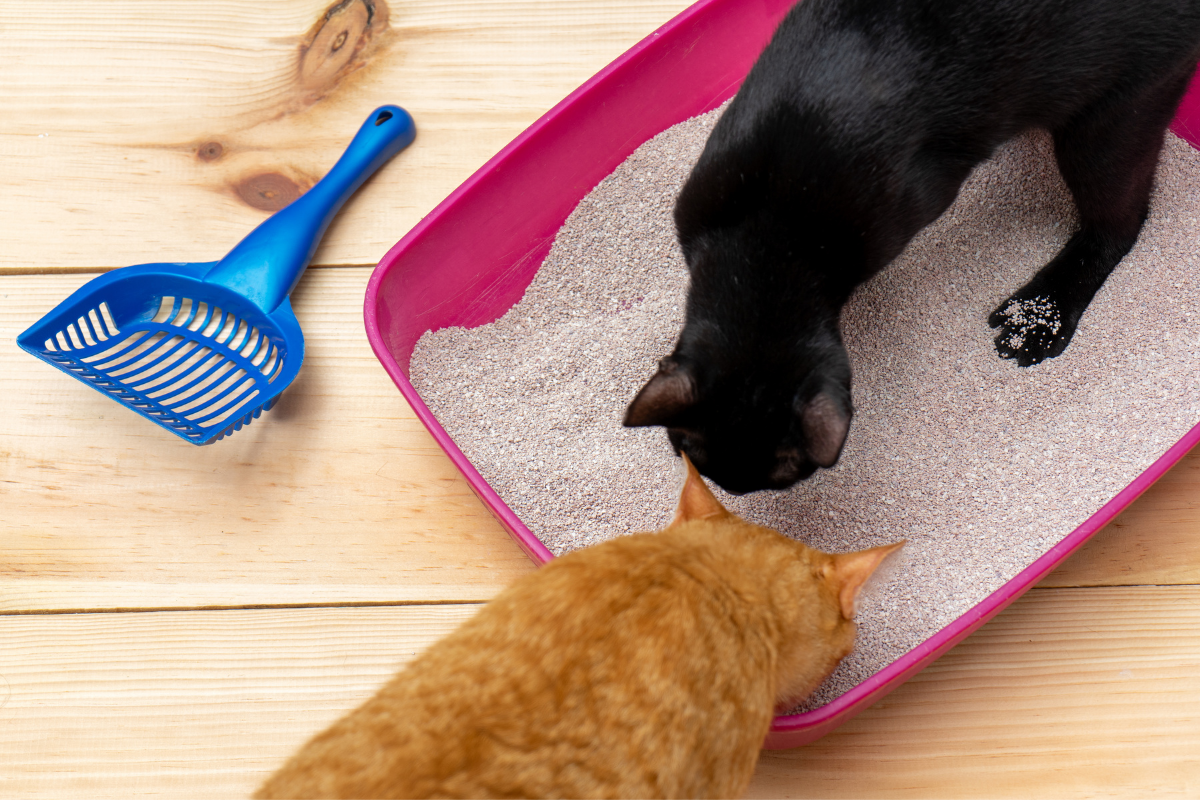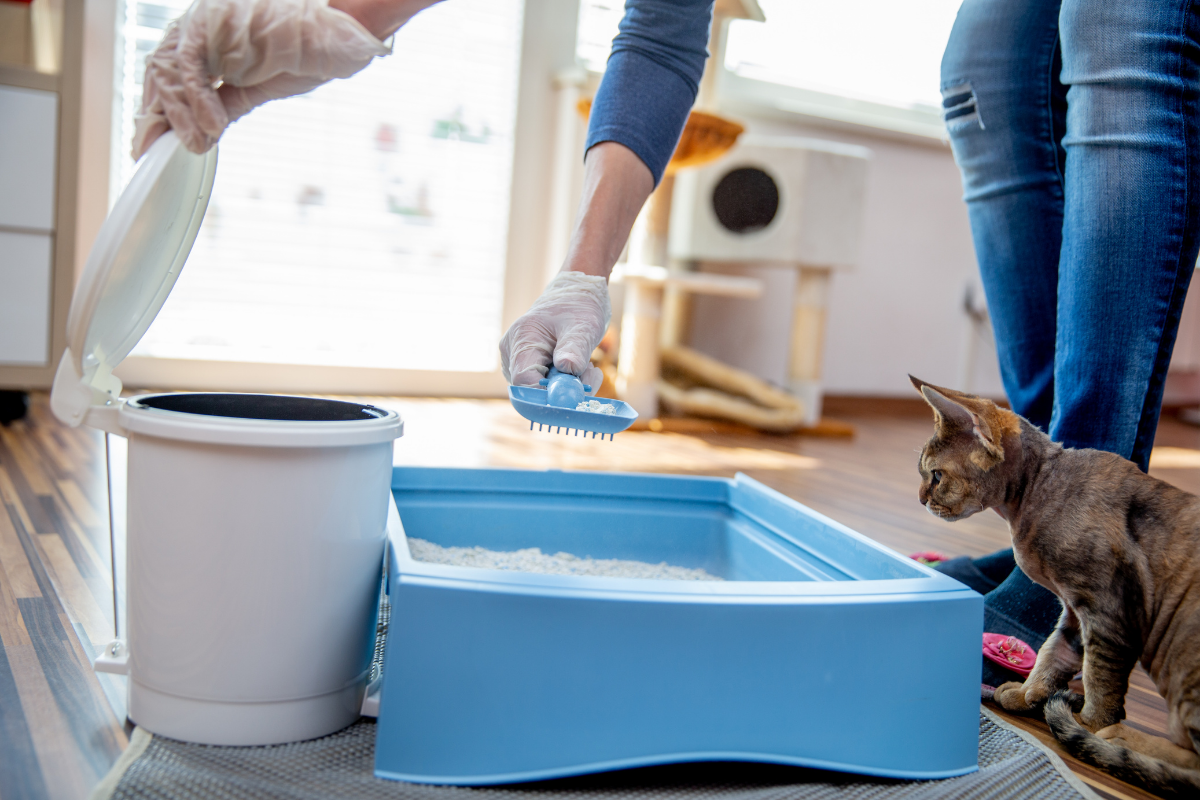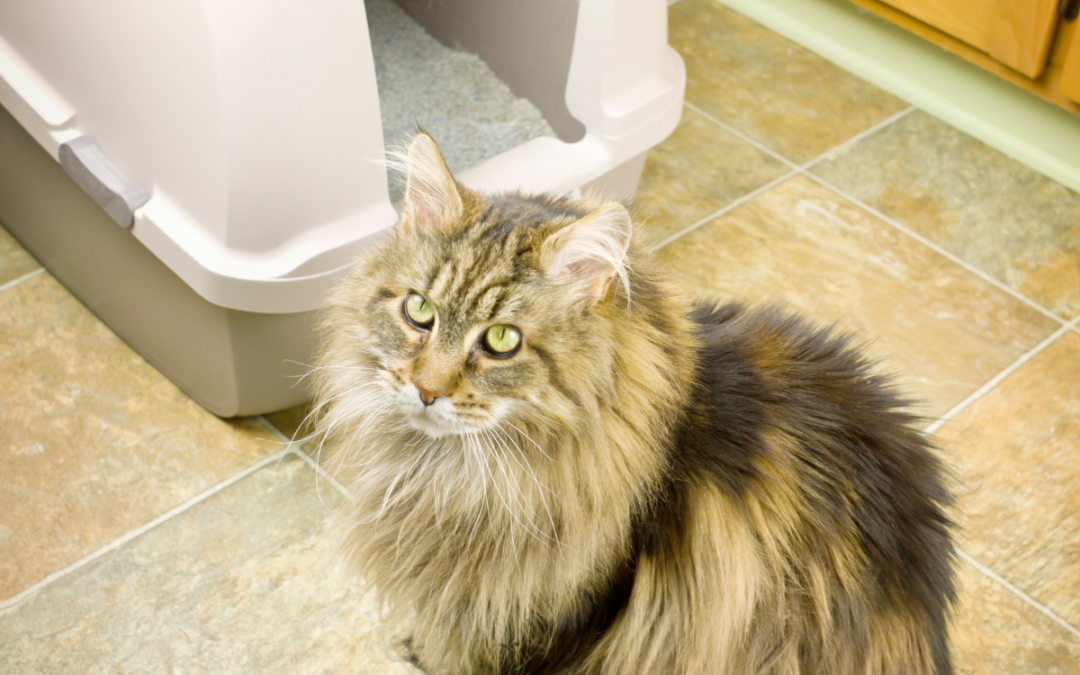Cats can be quirky. It’s what we love most about them. But they are generally clean by nature. Their frequent grooming is evidence of that. So why do some cats stop using their litter boxes? It could be as simple as their box not being clean enough. Or it might be something more serious. There are reasons, both psychological and physical, that can lead to a cat eliminating in unusual places around the house, like in the bath tub or on a rug. There can also be environmental responses to stress, such as when a new cat is introduced into the home and your cat starts marking its territory by spraying on the walls or furniture. It’s important to get to the heart of the problem so you can address it effectively.
First, Rule Out Any Health Issues
It’s important to have your cat seen by a veterinarian so you can rule out one of the most common reasons cat quit using litter boxes — urinary tract infections or UTIs. Accidents around the house are a common symptom of UTIs. If you hear your cat yowling when urinating, it might be feline idiopathic cystic (FIC), bladder stones or urethral plugs. In fact, FIC, bladder stones, and urethral plugs account for 85 percent of feline lower urinary tract conditions and are often caused by stress. Cats with these conditions might also have blood in their urine.
If you notice your cat is spending more time in the little box or urinating in small amounts around the house, it could be a sign or a urethral obstruction, which is a medical emergency and must be treated right away. Likewise, if you notice your cat is drinking more water than usual, it could be a sign of kidney, liver, or thyroid conditions or even diabetes, and the increased water intake may mean your cat simply can’t make it to the litter box in time due to frequent urination.
It’s important to rule out any medical reasons for the misbehavior before you address the psychological reasons that might be leading your cat away from the littler box.
Most Cats Don’t Like Change
Changes in the household routine are a common culprit. Perhaps you just introduced a new puppy or brought a baby home from the hospital. Both are very stressful for your cat. If you’ve introduced a new cat, perhaps your original feline fur baby doesn’t like using the same little box.
Cats are also keenly aware of the scent and feel of their usual litter. If you change brands abruptly, they might stop using it altogether. If you find it necessary to change litters, introduce them a small amount at a time and blend them in with the old little until your cats become accustomed to the new scent and feel.
If you’re going to move your cat’s little box, do it in stages. Move it only a few feet each day until you get it to its new location. This will allow your cat to adjust.
Make Sure You Have Enough Litter Boxes
Cats are finicky and they like their own space. If you have several cats in your household, it might be necessary to have a litter box for each cat kept in different locations. It’s also a good idea to have one more litter box than the number of cats in the household. So, if you have two cats, make sure to have three litter boxes. Some cats may not prefer covered litter boxes, so it’s best to have at least one covered option and one uncovered option.
Also remember, cats don’t like to urinate or defecate near where they eat or drink water, in areas of heavy traffic or near noisy appliances like washing machines or water heaters.

Keep It Clean
Because cats are habitually clean, it’s also important to clean out waste each day and wash the box with an enzymatic cleaner each week. Avoid common household cleaners or ammonia, because their strong smells can linger in the litter box and turn Mr. Whiskers away. There are many effective enzymatic cleaners to choose from including Angry Orange Ready-to-Use Citrus Pet Odor Eliminator or Bubba’s Super Strength Enzyme Cleaner, both available on Amazon.

Keep Them Calm and Don’t Scold
A cat that is already in distress will not respond well to being punished for not using the litter box. No matter what the reason is, it is valid to them and they don’t understand your anger over something they can’t control. When taking your cat to the vet, also try to make the visit less stressful, which will make an already stressed cat worse.
The veterinarians at Jacksonville Community Pet Clinic can help diagnose any medical and behavioral issues. They also take a few minutes to get to know your kitty and let them become familiar with them before they poke or prod. Likewise, Jacksonville Community Pet Clinic also has mobile veterinarian clinics you can visit that can only accommodate a few animals at a time, allowing you to avoid a crowded waiting room altogether.


